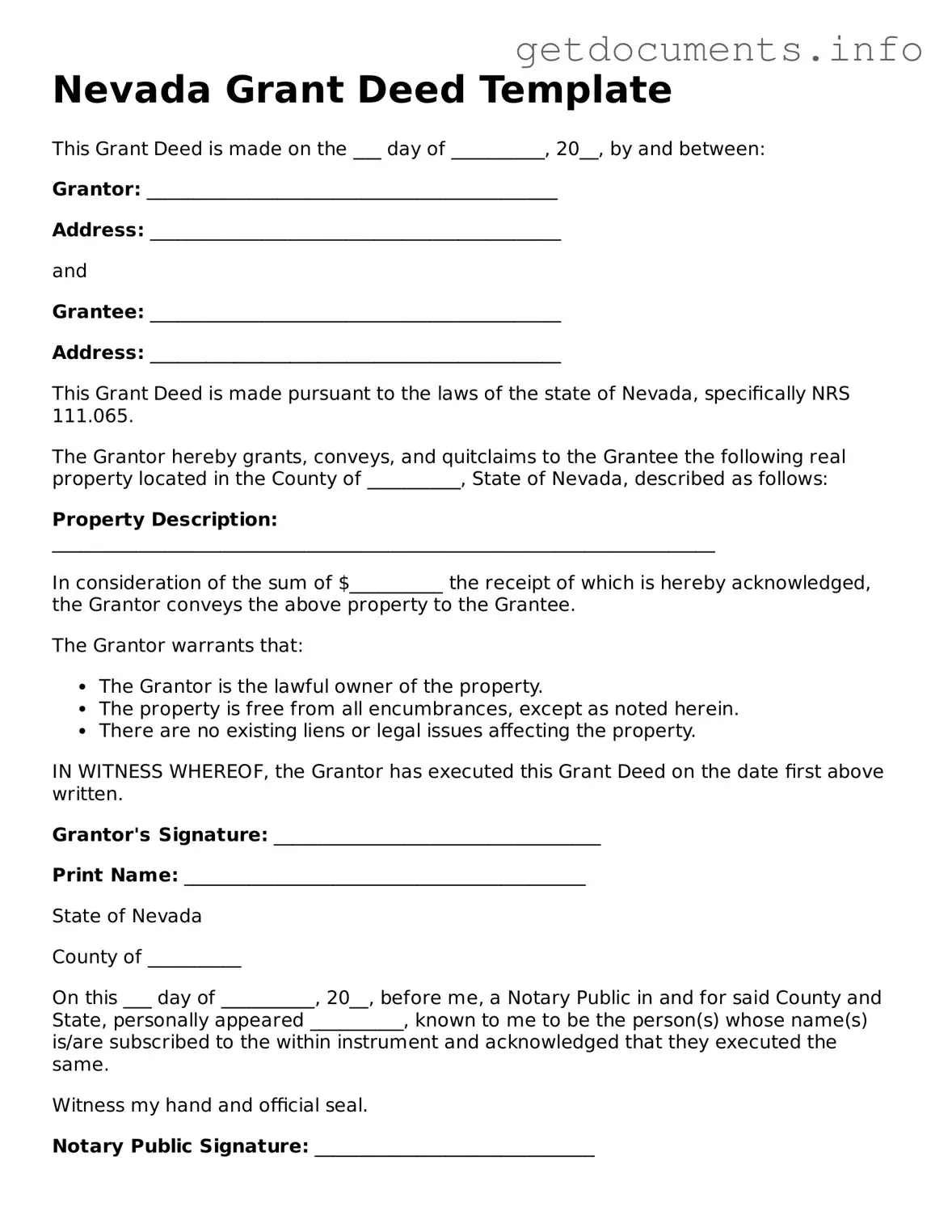Free Deed Template for Nevada
A Nevada Deed form is a legal document used to transfer ownership of real property from one party to another. This form outlines the details of the transaction, including the names of the parties involved and a description of the property. To begin the process of transferring ownership, fill out the form by clicking the button below.
Access Deed Editor

Free Deed Template for Nevada
Access Deed Editor
Got places to be? Complete the form fast
Fill out Deed online and avoid printing or scanning.
Access Deed Editor
or
⇩ PDF File
